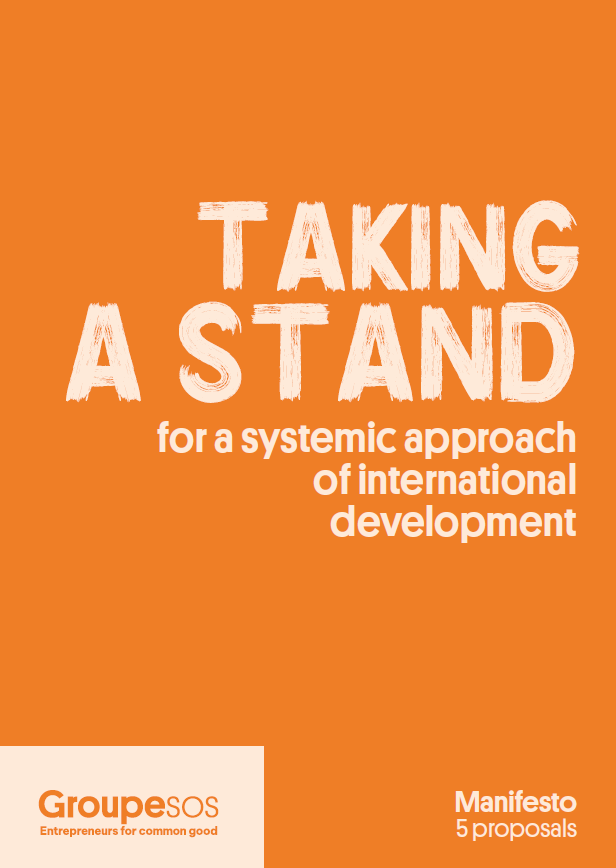Groupe SOS articulates 5 proposals for a systemic approach to international development based on its actions in the field in 50 countries.
Action is urgently needed… beyond emergency solutions. Social inequalities are intolerable. 700 million people still live in extreme poverty. Two-thirds of the world’s wealth is held by the top 1%. And the gap is widening.
Meanwhile, the climate crisis is gathering pace, hitting the most vulnerable first. Harder and harder. The risk of a global warming reaching +5°C is very real. Climate migration is set to double by 2050. Biodiversity is being decimated.
Humanitarian sticking plasters are essential but insufficient. The world’s ills must be remedied at their roots, so that the symptoms do not recur indefinitely. “Change the system”… easier said than done. Change what, exactly? And how?
Let’s draw lessons from our scaling-up of impact projects around the world, and from the obstacles we faced. Let’s create a systemic approach to international solidarity, where entrepreneurial logic is put to work for the benefit of the most vulnerable and the planet. This approach is based on the 5 drivers of systemic change. For the optimists – there are 22,000 of us at Groupe SOS! – each one is a lever for multiplied positive impact.
The solutions exist. They are not theoretical. They have been tried and tested for 40 years by Groupe SOS in the 50 countries where we operate. It’s time to scale them up!
Our proposals
Create ecosystems conducive to the development of the Social and Solidarity Economy in countries which have none.
Support entrepreneurs towards impact by making social and environmental impact measurement a standard practice.
Direct solidarity and sustainable investments preferentially towards impact entrepreneurs in vulnerable countries.
Work to empower civil society organisations in vulnerable countries, by entrusting them with the implementation of projects in their own regions and guiding international NGOs towards a support role.
Make involvement through corporate volunteering more systematic by opening it up to all working people throughout their careers.


